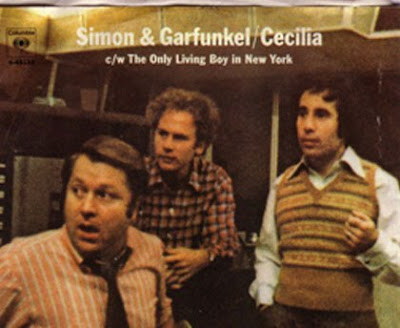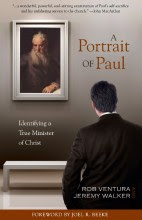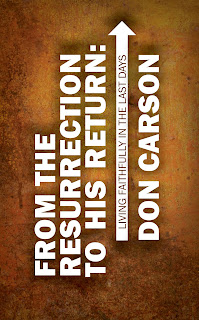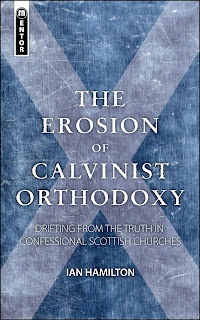
Here is a post from the Against Heresies archives:
I'm currently reading through a short book on the atonement in the bible and church history. The author believes in penal substitution, and that it is one of many metaphors to explain the cross. The publishers' blurb on the back cover begins with this sentence:
The Penal Substitutionary theory of the atonement says that Jesus suffered the divine punishment for our sins at Calvary.Early in the book Calvin is credited with being the first to give a "full-blown penal substitutionary account of the atonement" and "the first full statement of penal substitution," and again "the first complete statement of a penal substitutionary theory of the atonement" (emphasis mine).
In describing penal substitution the author at times designates it as a metaphor, at times as a doctrine, and at other times as a theory. Significantly, in commenting on Isaiah 53, the author says that this chapter "comes as close as anything in the Bible to teaching penal substitutionary atonement. Still, there is not a fully worked out theory here."
This line of thought culminates in the following statement at the conclusion of the chapter on the New Testament teaching on the cross:
...what of penal substitution? Is it taught in the New Testament? We need to be careful here. There is, as far as I can see, no clearly worked out doctrine of atonement in the New Testament. Instead there is only the raw material out of which we may and must attempt to construct such a doctrine. And this shouldn't surprise us: most of the central beliefs of Christianity are built on the foundations of the Scriptures, rather than read straight out of them.There are two issues before us here:
1. The relationship between the "raw material" of Scripture and the doctrinal formulations that we construct out of that raw material.
2. The relationship between explicit statements and implicit, equally authoritative, teaching in Scripture
On the second of these points the author says that the language about the atonement in the New Testament "could be understood in penal substitutionary terms if we had good reason to do so, but equally could be understood in other terms." This caution safeguards us from attempting to read the whole doctrine out of every text. With that I am in some sympathy. If creedal statements are a concise synthesis of what the whole Bible teaches about a particular doctrine, the danger, if we begin with the creedal definition, is that we then read that back into every text.
A further danger is that we subtly expect Scripture to state the same truth for us in exactly the same way as a creed or confession does. We can surely say that the Bible teaches that "Jesus bore the penalty for our sins" without insisting that the Bible must set down that truth in exactly that form of words. If the Bible does not state the truth in precisely those words are we to allege that it clearly doesn't teach that truth? Or that it doesn't teach it clearly?
This brings us to point 1). Is our doctrine part of the "raw material"? And what does that mean? Is it present in Scripture so that it ought to be believed, confessed and taught? Or are the constituent parts present in such a way that the doctrine or theory can be assembled, but until it has been no one is obligated to receive it? Could the "raw material" be constructed into a different theory? Does the ascription of "raw material" apply to all biblical teaching on every doctrine? Is there an apostolic doctrine of the cross? Does this doctrine include penal substitution?
In light of Galatians 3:13 and Isaiah 53 I cannot avoid the conclusion that Christ's death was in the place of sinners, and that in their place he bore their punishment. In Packer's words:
The notion which the phrase ‘penal substitution’ expresses is that Jesus Christ our Lord, moved by a love that was determined to do everything necessary to save us, endured and exhausted the destructive divine judgment for which we were otherwise inescapably destined, and so won us forgiveness, adoption and glory. To affirm penal substitution is to say that believers are in debt to Christ specifically for this, and that this is the mainspring of all their joy, peace and praise both now and for eternity.It seems to me that if we hold that Scripture contains only the raw material but that it is left to us to attempt to construct a doctrine out of it, we do the teaching of Scripture a great disservice, and perhaps even in seeking to uphold this truth we inevitably destabilize its status. Consider the following from Herman Bavinck:
All these different appraisals of the death of Christ are frequently labeled "theories" that have been constructed by human thought in an attempt to explain the facts. The picture presented is that Scripture does not contain a clear, authoritative, and decisive doctrine of the suffering and death of Christ...it gives us the facts but not the theory, the matter of all Christian doctrine, but no finished doctrine or doctrines of the whole of Christianity. (Reformed Dogmatics Vol. 2, p. 382)Packer's words in the conclusion to What did the cross achieve? The logic of penal substitution are also apropos:
...full weight must also be given to the fact that all who down the centuries have espoused this model of penal substitution have done so because they thought the Bible taught it, and scholars who for whatever reason take a different view repeatedly acknowledge that there are Bible passages which would most naturally be taken in a penal substitutionary sense. Such passages include Isaiah 53 (where Whale, as we saw, [n. 36] finds penal substitution mentioned twelve times), Galatians 3:13, 2 Corinthians 5:15, I Peter 3:18; and there are many analogous to these




















